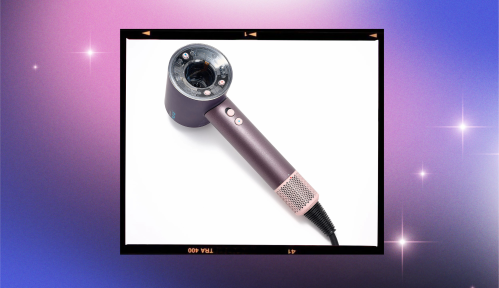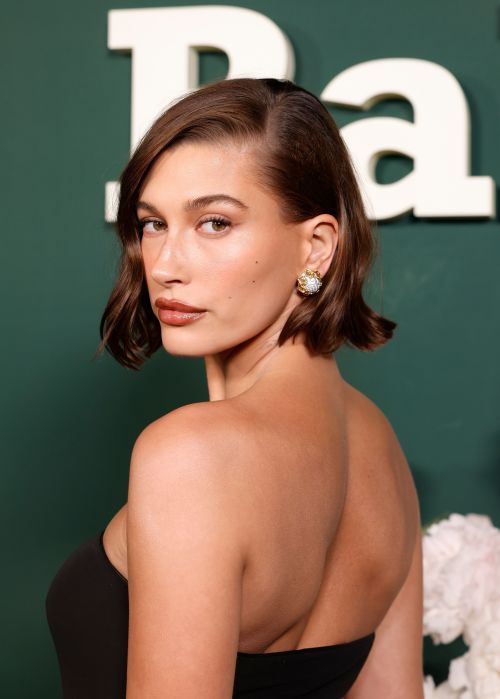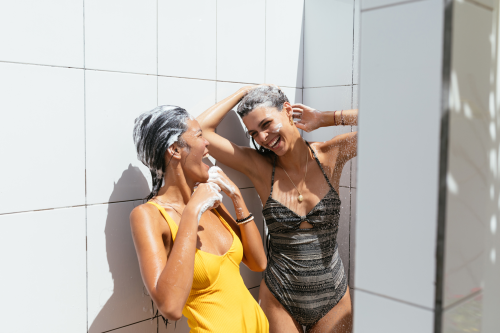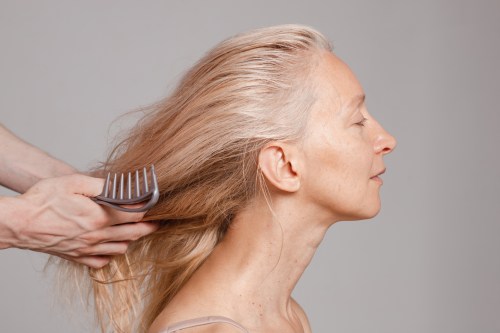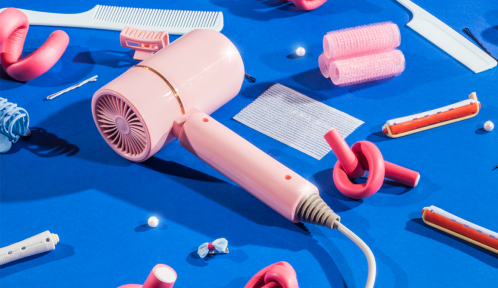Wondering, “why is my hair so dry?” One of these 7 causes is likely to blame
The answer to "why is my hair so dry?" typically comes down to seven common reasons say pros. Here's what they are and how to deal with each.

Living with curly hair, I’ve spent the majority of my free time figuring out ways to nourish and hydrate it. Still, sometimes I find myself questioning: Why is my hair so dry? Whether your hair is spiralized in ways that would make zoodles jealous or stick straight, it’s likely you’ve wondered the same thing on occasion.
Looking for answers, I spoke to a couple of hair experts who say keeping your hair healthy requires getting to the root of an issue (pun intended). When it comes to dryness, Sarah Lund, style master at Aussie hair-care company Kevin Murphy, tells me that there are two different types of dry hair. The first is that it’s lacking in hydration and the second is that it’s lacking in moisture. “Dehydrated hair typically feels dry due to an internal issue with the hair strands,” while moisture-less hair “is typically hair that is affected on the outer (cuticle) layer of the hair” she explains. In general, there are seven common causes of dry hair.
1. To quote lady gaga, baby, you were born this way
Hate to break it to you (and myself), but if you have curls, you could be prone to dry hair. (Sigh.) Why? “Curly hair has a bent cuticle layer that tends to lose moisture more rapidly then straighter hair strands” Lund explains.
2. Your shampoo is stripping your strands of moisture
Another reason your hair might not be as healthy as you think is because of the number of harsh chemicals and toxins typically found in conventional hair products. For example, “sulfates are man-made cleansing agents that you will often find in shampoos as they are readily available and cheap,” Lund explains. The problem? “They’re extremely harsh and can strip the hair of moisture and even hair color.” Even if you’re showering with natural shampoo, washing your hair too much can strip your strands of the moisture they need.
3. Hot tools have dried your hair out
Even as hot-tool technology gets better, your hair still has a hard time handling the heat of flat irons, curlers, or blow dryers. The more frequently you use hot tools, the more likely they are to dry out your hair.
4. Sun and UV RAY damage has left your hair dry and brittle
Just like your skin, your hair is susceptible to UV ray damage. “Direct heat from the sun can cause moisture loss from your hair, very similar to the effect repeated use of heat tools can have” says Kevin Wachs, founder of Emera hair care. Not only do UV rays dry out your hair, but they can also affect its ability to hold onto moisture.
5. Your hair lacks the humidity it needs to be healthy
Your hair might have a love-hate relationship with humidity, depending on the seasons. But at the end of the day, it really needs it. When the humidity isn’t high enough—either because of arid climates or indoor conditions like when your heats on in winter—it can dry out your hair.
6. Cold weather has sucked your hair dry
A lack of humidity isn’t the only issue your hair has to contend with during winter. Heavy winds cause moisture in your hair to evaporate faster than usual, Wachs says.
7. Chemical processes are causing your hair to dry out
Like the overuse of heat tools, this is another common cause of dry hair you likely know about already: Using any sort of chemical treatment on your hair (bleaching, straightening, etc) can over time, create dry and brittle hair.
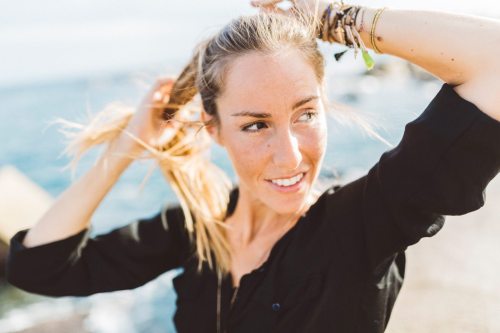
How to fix the damage
The right course of treatment depends on what’s causing your dry hair in the first place—dehyrdation or lack of moisture. In general, Lund says you’d handle your hair similarly to how you would your skin in either scenario: When it’s dehydrated, you drink water, and when it needs moisture, you use a lotion. Below are four tips for treating both types of dry hair like a pro.
1. Pick the right hair-care products
When you’re picking hair products, avoid sulfates and look for ingredients like essential fatty acids and nourishing oils which help trap moisture and prevent moisture loss. This includes things like omega 3, 6, and 9, hemp seed oil, avocado oil, cupuacu seed butter, olive fruit oil, evening primrose oil, shea butter, and coconut oil. “Products and ingredients that are high in antioxidants are important because they are great at fighting free radicals that break down hair structure, and they protect from environmental stresses, like UV rays, that can damage hair and sap it of moisture,” Wachs says.
2. If you’re going to use a heat tool, use heat protection
For those who can’t live without a straightener or a blowdryer (especially in the winter), Wachs says to try and keep the temperature of the tool below 400 degrees. If your hot tools don’t have a cool setting, Lund says to find a lotion or cream that will protect and replenish the damage you’re doing to your hair.
3. Don’t neglect your scalp
Even if you’re on top of your haircare it’s very easy to forget that your scalp needs TLC too. Make sure that you’re treating your scalp with the same nourishing ingredients you’re using on your strands. Having a moisturized scalp is like having a solid base that will allow hair-care products to work better.
4. Drink lots of water (of course)
The answer to every health and beauty ailment usually includes hydration. If your dry hair won’t quit no matter how well you take care of it, make sure that you’re getting enough H2O to hydrate your body from the inside out (and from root to end).
And here’s the verdict on if you should actually be using baking soda and apple cider vinegar on your hair.
Sign Up for Our Daily Newsletter
Get all the latest in wellness, trends, food, fitness, beauty, and more delivered right to your inbox.
Got it, you've been added to our email list.
